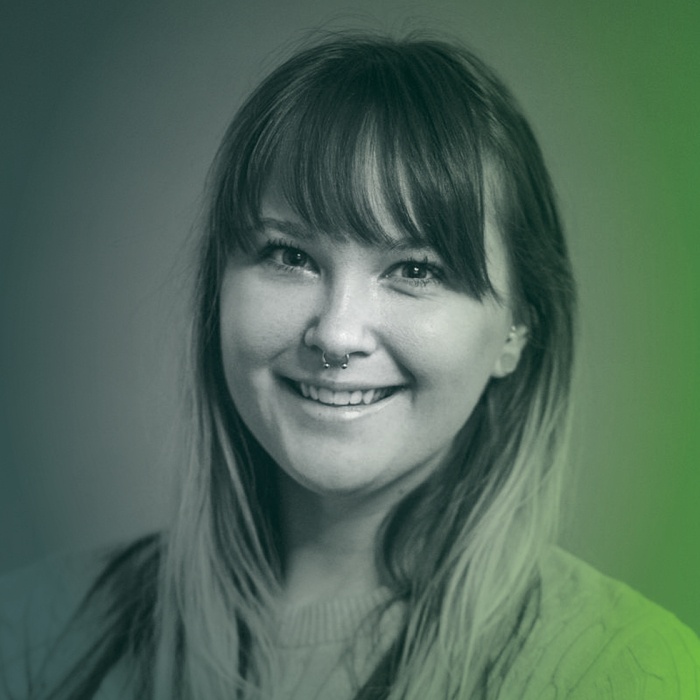What is your position with Ellipsis?
I’m a therapist at Ellipsis.
How long have you worked here?
I’ve worked at Ellipsis for nearly five years.
Have you had any other roles/jobs during your tenure with Ellipsis?
I’ve always been a therapist working with youth at Ellipsis.
What drew you to work at Ellipsis?
I was drawn to Ellipsis after hearing about the organization’s mission when CEO Chris Koepplin and Chief Clinical Officer Nikki Thomson came to speak to my class in graduate school. I thought the work they were doing was incredibly important, and I wanted to be a part of the team supporting Iowa’s youth.

Can you recall a moment (during your career with Ellipsis) when you felt like you were in exactly the right place, doing exactly what you should be doing? What was that like?
There have been many moments. Anytime I see a smile on a young person’s face after they accomplish a goal, no matter how big or small, it makes the job worth it.
What are some of the more challenging aspects of this job?
One of the most challenging aspects of this job is the misconceptions and perceptions that can occur with the youth we work with. It is important to let the youth show us who they are and not what they have been labeled before we began working with them.
What are some of the rewarding aspects of the job?
One of the most rewarding aspects of my job is seeing the kids’ confidence in their own strengths and abilities grow. In my role, I may only be on their path with them for a short period of time, but it is amazing to see them gain skills, insight and motivation for their goals in life.
Why is it important to have residential programs in communities, and qualified people working in them?
It is important to have a safe and supportive environment for youth to be able to gain and refine their skills that will be beneficial in keeping them in the community when they discharge. Having qualified people working with these youth is so necessary. They are the people the youth will spend a great deal of time with and be the ones caring for them and supporting them in numerous ways while they are in placement.
What is a misconception people may have about mental health treatment? How do you dispel that?
Mental health treatment is not one-size-fits-all. One type of treatment may work great for one person and not be ideal for another. Educating clients, families and communities about the different types of treatment can play a big role in finding the right fit for a client while also exploring and advocating for various additional services that may also benefit them.
If there’s anything else you’d like to add about your role, please feel free to do so!
Never hesitate to reach out to Ellipsis for help. We care about youth and families and their futures.
